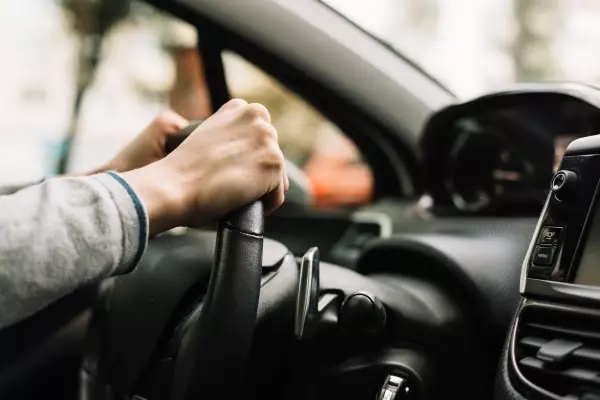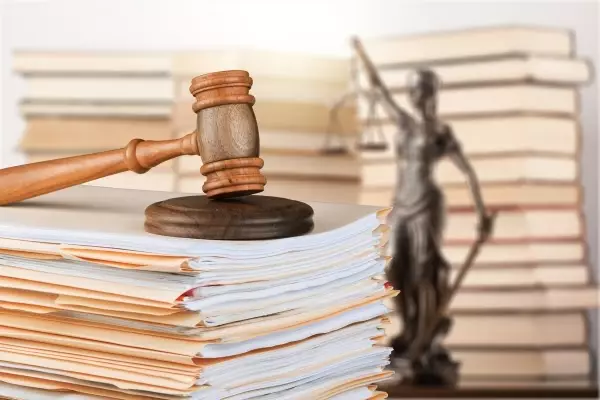The penalties for alcohol crimes in Los Angeles are meant to deter people from breaking the law and to keep the city safe. A number of different penalties can be imposed for alcohol crimes, depending on the severity of the offense.
The penalties for alcohol crimes in Los Angeles are meant to keep the city safe and to deter people from breaking the law. There are a number of different penalties that can be imposed for alcohol crimes, depending on the severity of the offense.

In this article, we will discuss what crime penalties are, and then we will go over some of the different types of alcohol crimes and the penalties in Los Angeles.
What is a Misdemeanor Conviction?
A misdemeanor is a minor criminal offense that is punishable by a fine or imprisonment for less than one year. In most jurisdictions, misdemeanors are classified as petty or serious offenses.
Petty offenses, also known as infractions, are typically punished by a small fine. More serious misdemeanor offenses, such as assault or DUI, can result in up to one year in jail. Misdemeanors are typically tried in criminal court, but in some jurisdictions, they may be heard in juvenile court or small claims court. In most cases, a misdemeanor conviction will not result in a loss of civil rights, such as the right to vote or the right to own a firearm.
If you are convicted of a misdemeanor drunk driving offense in California, you may face the following penalties:
-
Jail time of up to six months;
-
A fine of up to $1,000
-
Suspension of your driver's license for up to one year
-
Requirement to attend a DUI school
-
Probation for up to three years
-
Installation of an ignition interlock device in your vehicle
What are Criminal Penalties?
Criminal penalties refer to the punishments that are imposed on individuals who have been convicted of a criminal offense. The criminal justice system in most jurisdictions is designed to ensure that these penalties are proportionate to the seriousness of the crime and the criminal history of the offender. Criminal penalties imposed by the state are meant to protect public safety and to rehabilitate or reform the offender.
The most common criminal penalty is imprisonment, but other penalties may include community service, probation, electronic monitoring, and restitution. In some cases, a criminal conviction may also result in the loss of certain civil rights, such as the right to vote or to possess a firearm. These are enforced by the state or federal government and are imposed by judges or juries following a criminal trial. Appeals may be available in some cases if a defendant believes that their sentence is excessive or unjust.

What is a Sentence?
A criminal sentence is a judgment imposed by a court of law on a person who has been convicted of a criminal offense. The sentence may take the form of a fine, imprisonment, probation, or any combination of these three. The purpose of a criminal sentence is to punish the offender and to act as a deterrent to others. In some cases, the sentence may also be designed to rehabilitate the offender and help them to reintegrate into society.
The severity of the sentence will depend on the offense's nature and the offender's criminal history. In rare cases, offenders may be given a life sentence, meaning they will remain in prison for the rest of their natural lives.
What is a Felony?
A felony is the most serious type of crime that a person can commit. Felonies are typically punishable by imprisonment for more than one year, and in some cases, by death. Some examples of felonies include murder, rape, and armed robbery.
In the United States, felonies are usually prosecuted by the state in which they were committed. However, federal felonies are also tried in federal court.
In California Law, drunk driving can be charged as a misdemeanor or a felony, depending on the facts of the case. For example, if you are arrested for drunk driving and have no prior drunk driving convictions, you will likely be charged with a misdemeanor. However, if you have one or more prior drunk driving convictions, or if your drunk driving caused an accident that resulted in injury or death, you will likely be charged with a felony.
DUI offenses in Los Angeles County
Open Container Law
Open container laws are designed to discourage drivers from drinking alcohol while operating a vehicle. In the state of California (which applies to Los Angeles county), it is illegal to have an open container of alcohol in the passenger area of a car.
This applies whether the container is partially full or completely empty. Violators can be fined up to $250 for a first offense. However, if a driver is convicted of DUI in Los Angeles, the penalties are much more severe, including jail time, loss of license, and high fines.
In Los Angeles, the penalty for a first DUI offense is a minimum of four days in jail and a fine of $390, plus penalty assessments. A second offense carries a mandatory sentence of 96 hours in jail and a fine of $1,000, plus penalty assessments. Drivers who are convicted of DUI three or more times can be sentenced to 120 days in jail and fined up to $1,800, plus penalty assessments. Prior DUI convictions can and will increase the penalty and sentence of anyone convicted.
The California DUI penalties are harsh because drinking and driving seriously harm public safety. This is why it is important to have a good criminal defense attorney who has stellar track records and a great attorney-client relationship in Los Angeles.
Misdemeanor DUI offenses
In Los Angeles, most DUI offenses are charged as misdemeanors. However, even a misdemeanor DUI can result in serious penalties, including jail time, driver's license suspension, and fines of up to $1,500. In some cases, a DUI may be charged as a felony offense, particularly if the offender has prior DUI convictions or again if there was an accident involved.
Other factors contributing to a felony charge include speeding, other driving violations, and possible prior DUI convictions.
In California, the penalties for a DUI are harsh regardless of whether it is charged as a misdemeanor or a felony, so it is important to seek legal assistance if you have been accused of drunk driving.
Underage DUI arrest
In the state of California, it is illegal for individuals under the age of 21 to drink and drive. This is due to California's "zero tolerance" policy regarding underage drinking and driving. If an underage person is found to have any detectable amount of alcohol in their system, they may be subject to a one-year driver's license suspension.
If an underage person is found to be legally intoxicated, they may face jail time, mandatory DUI school, fines of $100 or more, and 3-5 years of DUI probation. Additionally, in Los Angeles specifically, individuals who are caught driving under the influence (DUI) with a blood alcohol concentration (BAC) of .08% or higher can be charged with a misdemeanor offense.
The penalties for a misdemeanor DUI in Los Angeles can include up to six months in county jail, a fine of up to $1,000, and/or up to six months of probation. Suppose you are facing charges for an underage DUI in Los Angeles. In that case, it is important to speak with an experienced DUI criminal defense attorney who can help you understand your legal options and protect your rights.

Deaths Due to Drunk Driving
In Los Angeles, California, it is a crime to kill someone while drunk driving or under the influence of drugs and other substances. This crime is called "vehicular manslaughter while intoxicated" and is punishable by up to one year in county jail (misdemeanor offense) or 16 months, two years, or four years in prison for a felony conviction.
The crime of vehicular manslaughter while intoxicated is defined as follows: A person drives under the influence of alcohol or drugs and, in doing so, commits an unlawful act, misdemeanor, or infraction that could result in someone's death; when someone is killed as a result of ordinary or gross negligence, it may result in vehicle manslaughter while intoxicated or even gross vehicular manslaughter while intoxicated charges.
Depending on whether an individual acted with ordinary or gross negligence, the offense may be charged as a misdemeanor or felony.
Commercial Drivers with DUI penalties
If you hold a commercial driver's license in the state of California (including Los Angeles) and are caught driving with a blood alcohol content (BAC) of .04% or higher, you will be charged with DUI. This is half the legal limit for non-commercial drivers, which is .08%.
If convicted, you will have your commercial driver's license suspended for at least one year. This is true even if you were not actually driving a commercial vehicle at the time of the offense; for example, if you were driving your own personal vehicle.
Blood Alcohol Concentration Limits
BAC or Blood alcohol concentration is a key factor in determining if someone is under the influence and if their judgment will be impaired. The following are the set legal limit by the DMV regarding one's BAC when caught by authorities.
-
BAC reading of 0.08% or higher for those who are of legal age
-
BAC reading of 0.01% or higher for those who are underage/of any age with a prior DUI conviction
-
BAC reading of 0.04% or higher for a vehicle that needs a Commercial Driver's license (CDL)
-
BAC reading of 0.04% or higher for those who are ferrying a passenger who hired the driver in question
A legal limit is set to avoid possible false convictions, it's best to be aware of these, but ultimately, it is better to not drive while under the influence.

Conclusion
DUI Cases are very serious and those caught will face legal penalties that may include jail time, license suspension, and expensive fines. If you have been charged with a DUI, you must speak with an experienced Los Angeles defense attorney who can help you understand your rights and options.
